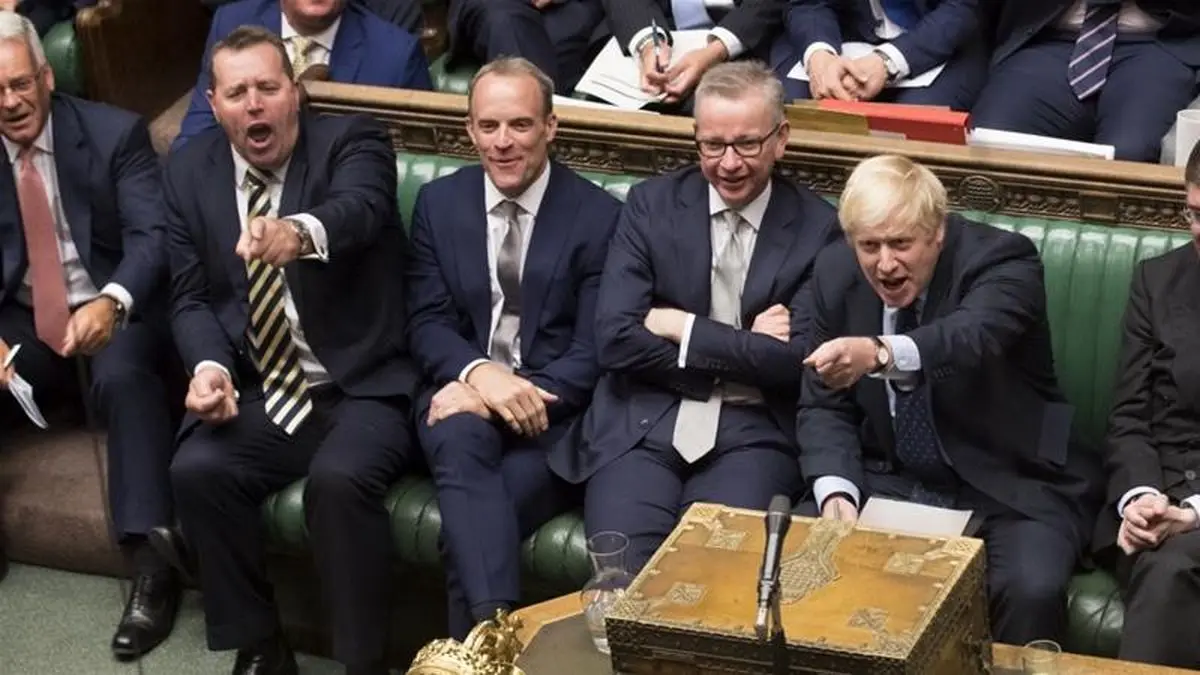“Rebel alliance” defeats Johnson in key no-deal Brexit vote

A "rebel alliance" of 21 Conservative MPs have on Tuesday night dealt an expected and humiliating defeat to UK Prime Minister Boris Johnson in the House of Commons.
They were able to seize control of the parliamentary agenda from the government and, after three hours of debate, MPs decided by 328-301 to go ahead with a vote on Wednesday aimed at blocking a "no-deal" withdrawal from the European Union.
As the result was announced, one MP shouted: "Not a good start, Boris."
All those Conservative MPs who defied Johnson will have the party whip removed - essentially being kicked out of the party - and will be unable to stand as Conservatives in any forthcoming election, likely meaning the end of many political careers.
Johnson's immediate reaction was to call for a general election. "We must make a choice," he said. "I don't want an election, but if this House votes for this bill, the public will have to choose who goes to Brussels to sort this out."
He added that Parliament was "on the brink of wrecking any deal".
Veteran rebels
Among those who rebelled was Ken Clarke, a former finance minister and a Tory MP for nearly 50 years, who accused Johnson and his coterie of plotting to fight a hasty election before the consequences of a no-deal Brexit became "too obvious to the public".
He said Johnson's answers in the Commons on Tuesday confirmed his "obvious strategy".
"Which is to set conditions which make no-deal inevitable, to make sure as much blame as possible is attached to the EU and to this House for that consequence and then as quickly as he can fight a flag-waving general election before the consequences of no-deal become too obvious to the public."
As Johnson addressed Parliament in the afternoon, Conservative MP Phillip Lee left the government benches, literally crossing the floor of the House of Commons, and defected to join the Liberal Democrats - reducing the Tories' working majority to zero. With another 21 rebels facing having the whip removed, Johnson is now leading a very much minority government.
With Johnson's pledge to leave the European Union with or without a deal - "do or die" in his own words - on or before October 31, parliamentarians and activists have been working to counter the threat they deem is posed by a no-deal Brexit.
Anti-Brexit protesters attend a demonstration outside the Houses of Parliament, in London, Britain September 3, 2019
Last week, six opposition parties, led by the Labour Party's Jeremy Corbyn, united in saying they would propose legislation forcing Johnson to seek an extension to the withdrawal deadline, allowing further time for either renegotiation of an exit deal, a vote of no-confidence in the Johnson administration, a general election, a second referendum on EU membership, or some combination of all of them.
Days later, Johnson sought - and received - permission from Queen Elizabeth II to suspend - or "prorogue" - Parliament for five weeks, severely limiting the timetable available for any legislative bid to block a no-deal.
"Ever since they moved to prorogue, it appears the Johnson government's tactics have been clumsy, and they've isolated and insulted the rebels," Scott Lucas, professor of international politics at the University of Birmingham, told Al Jazeera.
"They almost ensured they were walking into defeat. The government miscalculated, thinking the opposition factions were too divided, or would go straight for a vote of no-confidence."
END
